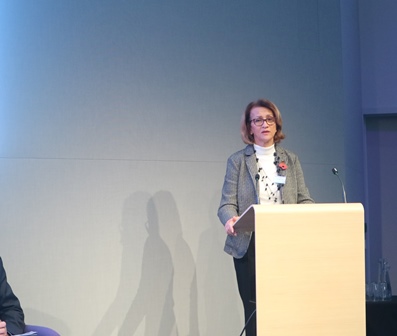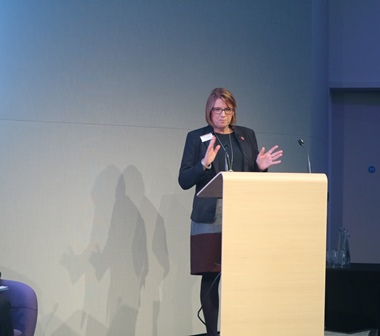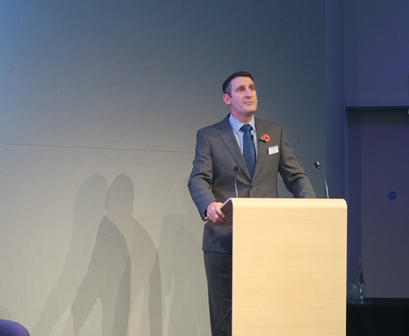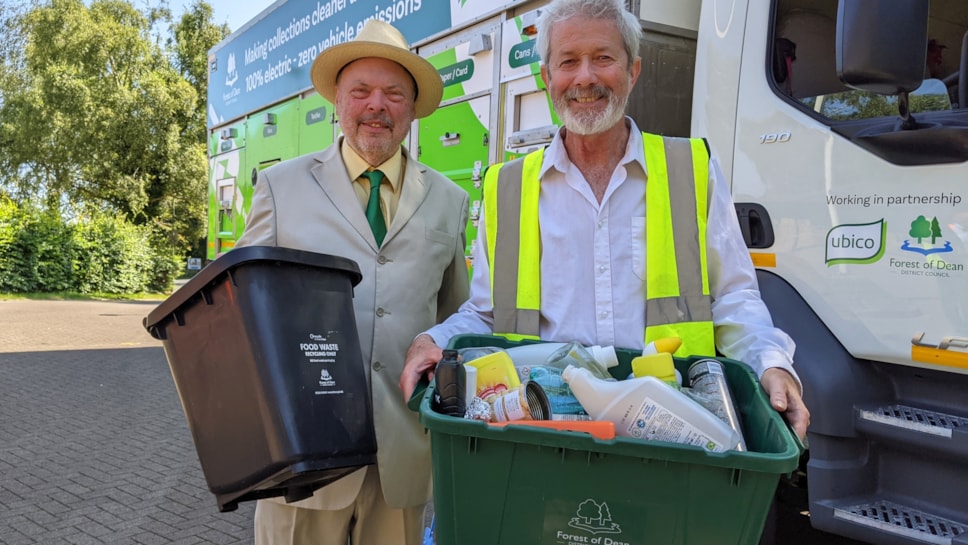Some recyclers said they had faced commercial difficulties complying with stack heights and separation distances. From an insurance perspective however, there were suggestions that they want regulations to go further.
Changes

From a regulatory perspective, Gill Weeks OBE, board member at the Environment Agency, explained that while the Environment Agency initial versions of the Fire Prevention Plans hadn’t always been right, it has been open to changes regarding FPPs.
This included revising the guidelines twice in response to industry feedback.
When discussing some of the feedback from the first guidance, Mrs Weeks said: “It was brought out with the best intentions but there were a number of concerns raised, and in effect, it was seen to be inflexible.
“Over time, we accepted there was a need for more flexibility and there was a consultation which led to a revision of the FPP meaning they were site-specific, and that one size doesn’t fit all, both in terms of location and also the type of plant.”
She added that ahead of the third revision the Agency had appointed a senior fire advisor, Peter Buckley, in order to add expertise to the team.
The third revision also offers specific regulations to each individual site, which can differ in terms of size, location and types of waste held.
Mrs Weeks conceded that while the first revision “wasn’t our finest hour”, the Agency has always been open to suggestions and showed a willingness to change.
Wood sector

When discussing the impact the FPPs have had on wood recyclers, Julia Turner, executive director of the Wood Recyclers Association (WRA), explained that the plans had led to some wood recyclers to cease trading.
And, she announced that the WRA had recently had a bespoke FPP guide for the wood industry signed off by the Environment Agency specifically for the wood sector and that the final details of this will be available in December, at the WRA meeting.
“By far the biggest problem for us in the last few years have been FPPs. We are all worried about waste fires and want to make sure they are kept to a minimum, but both version one and two didn’t’ work and the third was also unworkable too,” Mrs Turner explained.
She further noted: “We wanted to make sure we could work successfully with regulators to see how this could be delivered on the ground and that fire tests were including in FPPs and that permits were issued quickly and in a timely manner.”
With regard to the guide approved, she said it will give an overview of the wood sector and the issues it has, such as seasonality. It will also look at alternative measures specific to the wood industry, and Mrs Turner also pledged to share this with other associations in order to help them to develop their own programmes.
Insurance
But, despite the hard work of those involved in FPPs, in session two, Mark Allen of insurance brokers Willis Tower Watson explained that from an insurance perspective, many insurers have “no appetite” for waste companies due to the fire risk they pose.

This was summarised, according to Mr Allen, by the fact that when he invited insurers to attend the event, only one turned up, as insurers do not want to “seem as if they have an appetite” to insure the industry against fire.
And, he said that FPPs have actually been viewed negatively in his field as not going far enough.
“Of course, many insurers are commercial businesses, and it’s an obvious thing to say but they don’t like risk,” Mr Allen explained.
He added: “General feedback has been that there needs to be more checks and balances in the field. FPPs have actually been viewed as a negative. There has been a general consensus the they need to be far-reaching and really have teeth.”
He concluded by saying that most insurers are on stand-alone deals, describing this as a “shame” as the industry “has something to offer” the waste field.
Collaborative

The seriousness with which the fire sector views waste fires was highlighted by Mark Andrews, assistant chief officer of East Sussex Fire & Rescue and lead for waste and recycling fires at the National Fire Chiefs Council.
He explained that fire services across the country have been trying to tackle fires in the waste sector by working together with regulators and the industry in a more collaborative manner.
During his time with the London Fire Brigade, he developed a Memorandum of Understanding (MoU) which he said enabled those in waste sector to speak directly with the Environment Agency and the fire service as part of joint inspections.
“In pockets it’s been successful. We felt at the time that there is a framework of legislation already but from a regulatory perspective we need to work together in a more structured way,” he explained.
Mr Andrews added: “The M.O.U saw joint inspections, so a fire inspector and an EA officer would visit together, as opposed to on two separate days and potentially saying different things. This helped us a lot. There is more to do but the principle is better, smarting working together.”
- The conference was organised by letsrecycle.com in association with the WISH Forum and the National Fire Chiefs Council











Subscribe for free